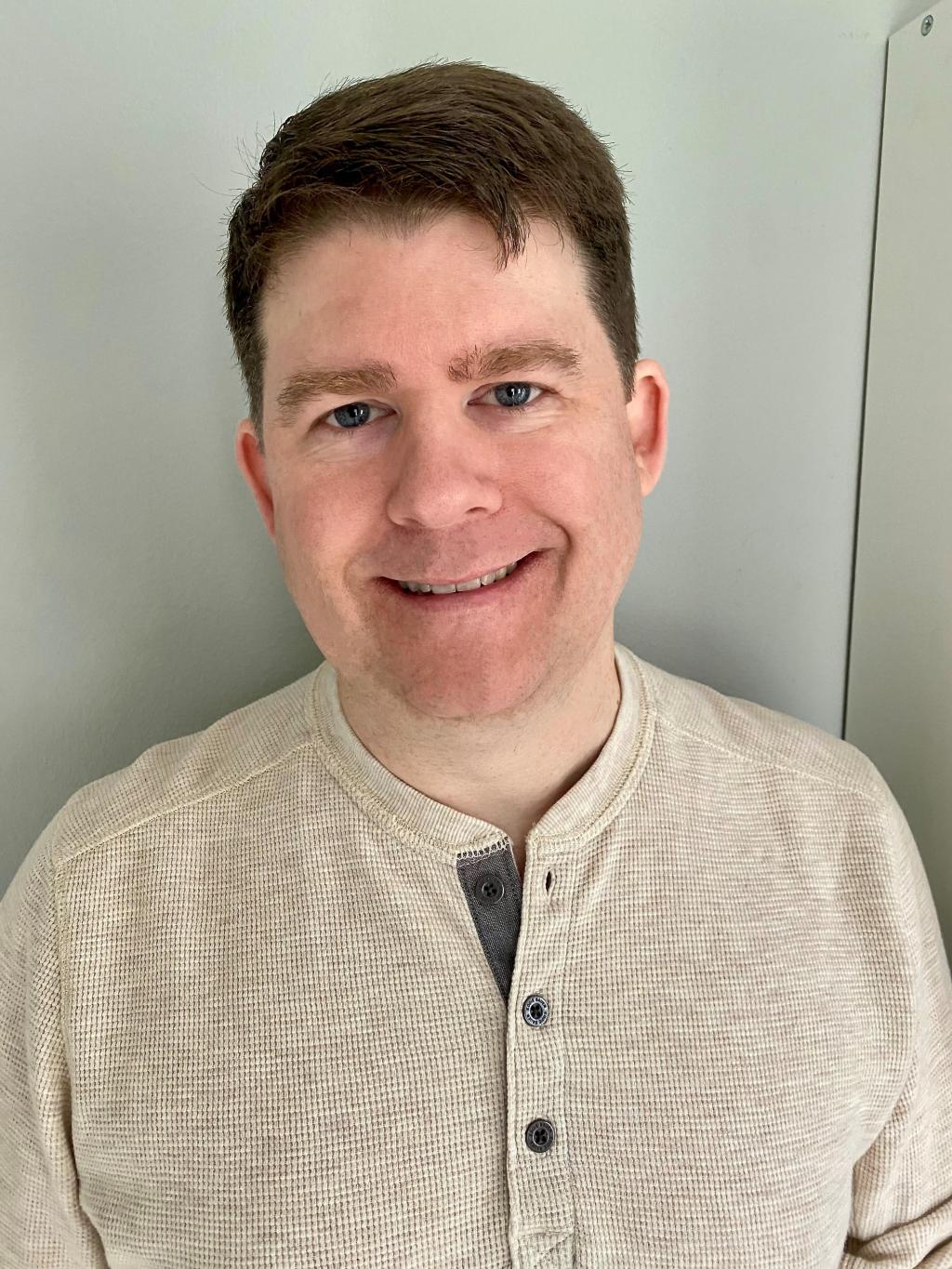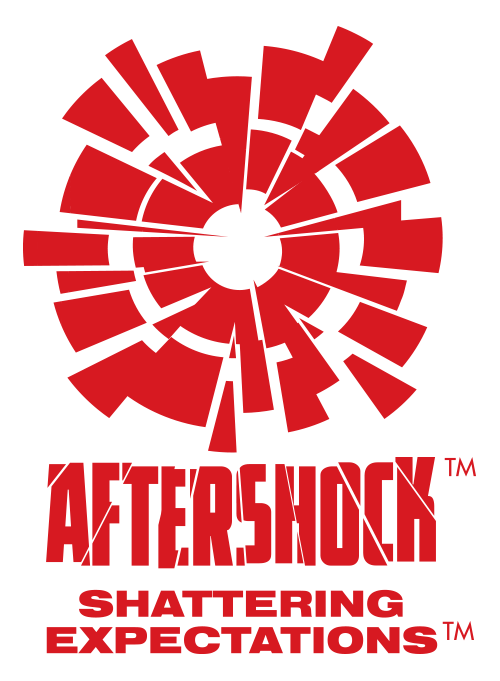Brian Cunningham has over 25 years in the comic book industry, but his latest role is as the editor-in-chief of AfterShock Comics. The publisher announced Cunningham would replace the exiting Mike Marts, who was the former editor-in-chief and co-founder, in early October. Cunningham is a former editor at DC, helping to guide some of its biggest titles like Superman, Justice League, Batman: Earth One, and
Superman’s Pal Jimmy Olsen. He will now focus his talents on AfterShock Comics, home to several fan-favorite creator-owned series like Animosity, Babyteeth, Undone by Blood, and many more.
Videos by ComicBook.com
ComicBook.com spoke to Brian Cunningham in an exclusive interview to find out how the transition to AfterShock editor-in-chief has gone so far in these early days, what new initiatives he’s looking forward to in 2023, AfterShock’s place in the independent comics scene, the TV and film development side of the business over at AfterShock Media, and more.

Surprises as EIC
ComicBook.com: You’ve only been the editor-in-chief of AfterShock for a few weeks now, but has anything surprised you so far in the role?
Brian Cunningham: Coming from DC, a lot of different spaces in the company are handled by a whole different bunch of departments. The difference at AfterShock is that it’s both staggering and kind of incredible in that all the things that DC does and has a whole bunch of departments to do, AfterShock, it’s all very consolidated. And I could ask one person who handles the equivalent of what three departments at DC would do, and that one person would know all of the answers. And it’s incredible.
And it’s been wonderful in that way it’s like one-stop shopping in many regards. I understand AfterShock is a smaller company, but it’s just been a joy to be able to get to know the team and have different relationships with each person on each team. Not on each team, but on each portion of the company. So I would say for me, coming from a very large company to a smaller company, the economy of information has been an interesting transition. But I enjoy it a lot. I’m having a blast so far.
That reminds me of how I used to do IT at a small investment firm, and the staff was maybe, at least back when I started, was maybe 20 people in a building. And it was almost that same type of atmosphere where I could go to one person and they would know not only about their department, but how some of the other departments would work. So it was always nice to learn firsthand how things go from basically reaching out to any person in the building and getting an answer from them.
Yeah, and I loved working at DC. Let me get that out of the way. I love the people. I still do. We’re still in contact. And I love that by having different departments, you kind of just expand your circle within that company. But here with AfterShock, that circle is much smaller. And sometimes you don’t have to wait so long for answers because approvals and whatnot are needed. You can get answers right away. And the team at AfterShock has been extremely generous in their time. They’ve been extremely welcoming and patient with my learning curve. So just learning the systems of the company and how everything functions. And they have been just been a really wonderful group of people to get to know, some of whom I had never worked with before. Actually, most of whom I’ve never worked with before, with the exception of Steve Rotterdam, who was at DC when I was at DC. I think we overlapped for a short period of time, but for the most part, everyone has been pretty new to me and it’s been great.
I have to say, I felt welcome from day one, just working with Joe Pruett, who I knew by reputation, but to get to know Joe and talk to Joe every day. Now we’re just kind of in lockstep, joking around and it’s as if we’ve known each other for years. It’s a strange relationship that way. Usually, there’s a little bit of a get-to-know-you period. But with Joe, for some reason, it just clicked like that. It was just from the word go.
Responsibilities of an Editor-in-Chief
For those who may not be familiar with what an editor-in-chief does, can you discuss what responsibilities and tasks are on your to-do list from day to day?
Well, the best part of being an editor in general is that every day tends to be a little different. One day you’re trying to focus on reading scripts. The next day you’re trying to proof lettering. Every day, there’s a combination of all of these things and that’s what makes it kind of special because sometimes you’re looking at cover sketches and you’ll look at them and think, “Ah, I don’t know if this is working.” And I come from an art background so I can go into the sketch and make some suggestions that the artist can mock or laugh at.
But every day is different. Today, for example, I’m doing this interview, but I’ve also been on the phone most of my morning and early afternoon and I have another meeting later. So some days it’ll just be like that. It’ll be getting to know people through Zooms or phone calls. Every day is different. And that’s kind of what makes the job really appealing to me because it is different and it never gets boring there. There’s never a boring day doing this role, which is really special. I wouldn’t trade it for the world.
2023 Initiatives
Do you have any initiatives you’re looking to kick off in 2023? I imagine there are some genres or maybe publishing avenues out there that you might believe are right for AfterShock to expand into.
Well there are, and I can’t really get into a lot of details on a lot of what we have planned, but there is one area I would like to see us expand a little bit further into. And that’s our Seismic imprint, which is targeted towards younger readers. And that’s a market, I think, that’s still hungry for new and good content. And that’s something I feel we have content to provide. So I think one of the things next year I would like to do is put a little more focus on Seismic and try to put a dent in that market.

What Sets AfterShock Apart From Competition
What do you think sets AfterShock apart from some of the competition in the world of independent comics?
Well, the one thing that impressed me before I even joined the company was its quality storytelling, and the fact that it doesn’t really rest upon any one genre. And that kind of variety and quality together really appealed to me as a reader. And when I got the opportunity to come aboard on staff, what was really first and foremost on my mind was just continuing the quality storytelling and just doing a variety of genre storytelling.
And part of the job is just not to screw it up. So I don’t want to mess up that success. And I guess other publishers do something similar, but they seem to lean a little more on certain types of genres and storytelling. But I think what we, AfterShock, do here is we put story first. The things like Maniac of New York or Chicken Devil, there’s crime, there’s horror, there’s satire, there’s a sense of humor. And I think the readership is really responding to those types of things too, which is gratifying to see. And I take zero credit for any of it because I’m just coming on board now. But I’m grateful that I have this opportunity to continue that quality storytelling. And I hope people will continue on as AfterShock readers because I know I’ll be one of them.
AfterShock Media
I know there’s AfterShock Media, which is the TV and film side of the business. Have you gotten a chance to work with any people at AfterShock Media who are working to get the different series developed for TV and film?
Yeah, I have. And that’s been a real eye-opener for me. That was one area that I had a bit of a glimpse into when I was at DC working in the Burbank offices. I got a glimpse of how that side of the entertainment business worked. Here, it’s much more of an intimate relationship that I have with that side. And it’s been really interesting to me to engage with that level of material. On the comic side, we do comics that we believe in and we do comics that work as comics. And then it’s tasked to that side of the business to see if they could be adapted for other media.
And seeing that process, I’ve really only begun to scratch the surface, but it’s been fascinating to me to see how it all functions. As someone who enjoys movies and television, I think we have some really great things coming up and some of those comics that I enjoyed as a reader, I’m seeing as potentially made into film and TV. That’s one area that AfterShock has had enormous success with is getting things optioned for other media.
So there’s really no shortage of that. So it’s really incumbent upon the comic book end to keep making good comics that work as comics and hope that they could actually fuel the other end of the business as well.
Message to AfterShock Fans
To wrap things up, is there a message that you would send to the AfterShock fans out there about beginning your tenure as the EIC?
Wow, that’s a good question. I think I really admire the company. I admire the company that Mike Marts and Joe Pruett built for the comic end. And the Kramers on the film side have done tremendous work. And I’m just grateful to have this opportunity. And I hope the fans see almost a seamless transition between myself and Mike. And I think I was talking about this the other day with somebody that the Venn diagram of taste between Mike and myself probably has a pretty big overlap. So I think it’s going to be a pretty smooth transition.
And I’m already seeing things that are already in the pipeline that have me really excited that we haven’t even announced yet. So I think those announcements will probably be coming within the next couple of months and I get excited about it. When I get excited about things, I can only hope that other people might feel the same way I do, because I’m a fan first. I love comics and being able to make comics is the greatest privilege I could think of. And I don’t take any of that for granted. So I’m just so happy to be in this position to make comics and I hope people like the things that I like, because if you do, then AfterShock is the place for you.








